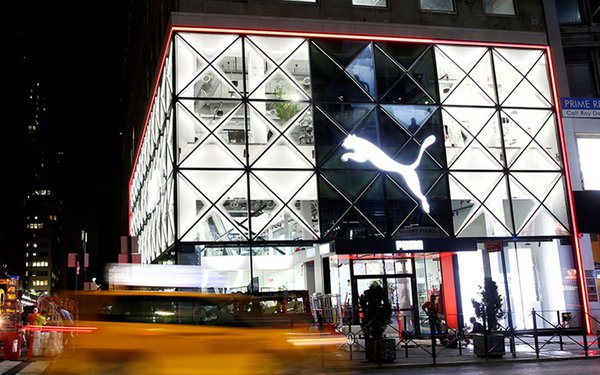
A stark financial warning from Puma may seem like just
the latest apparel brand hit by tariffs, sluggish consumer spending, and soft U.S. demand. The German company says second-quarter sales fell 2%, with revenue in the U.S. down 9%. But it shocked
observers by slashing financial forecasts, now predicting a double-digit sales drop for the full year, which could send shares tumbling by as much as 17%.
That’s sparked a broader question: Is Puma just underperforming, or is the pandemic-fueled athleisure boom finally wearing thin?
A
headline in The Independent asked, “Is the athleisure wear bubble about to burst?” Stock performance adds weight to the question: “Puma has
now lost four-fifths of its value from its post-pandemic high. Nike has surrendered half; and Under Armour two-thirds,” tge article notes. Adidas has also slowed its growth forecasts, and
Lululemon -- so long an athleisure superstar -- has seen momentum slow. Last month, the Canadian company said comparable sales in the Americas fell 2%.
advertisement
advertisement
And The Economist, citing data from Circana, writes that since 2021, the sales value of fashion and lifestyle sneakers has decreased by 5.8% in the U.S. This
year, as more people trudge back to the office, loafers, ballet flats, and boots are capturing more fashion headlines than the latest sneaker drop.
Certainly, there’s plenty of
proof that consumers are still prioritizing active and comfy apparel. Brands like Skechers, Hoka and On are outperforming, benefiting from performance credibility, brand heat, or both.
Puma, known for stylish collaborations, including a long-term partnership with Rihanna’s Fenty, admits the problems are both industry-wide and self-inflicted,
citing “muted brand momentum.” In April, the company tapped Arthur Hoeld as CEO, replacing Arne Freundt, and days later promoted Tara McRae to president of Puma North America, from senior
vice president of brand and strategy. She had previously served as CMO at Clarks and TB12.
The company says it’s pursuing a full brand reset -- though
in a rapidly shifting market, it may take more than new leadership to reenergize the cat.